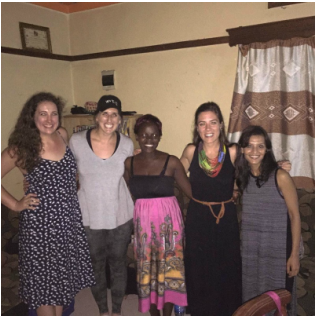 The past two days have been a whirlwind here in Uganda. Oeindrila and I spent most of yesterday finalizing our pitch and concept plan to provide to potential partners and collaborators. Together, we have spent the past 5 months formulating ideas on programming and how we can collaborate to expand the work of Playing to Live! in order to serve more children and communities in need. We have looked all across the world, quite literally, for possible implementation sites and Uganda’s South Sudanese refugee camps had the open doors we needed to schedule a trip. Together we are working to identify the ideal partnership and program site for Playing to Live! and to set the stage for strong research study. Once this has been completed, Oeindrila will be performing an independent evaluation on programming implemented by Playing to Live and our partner organization. Last night, we took a break from our computers and were welcomed into the home of a Ugandan woman who is leading the charge in serving the education and health needs of the children of Uganda. We were invited to join by two new art therapists from George Washington University who are currently visiting and volunteering their time in the region. This incredible woman has dedicated her life and her passion to provide health education and empowerment to Ugandan children. We listened all night to her stories and ideas she has to better her community. I left incredibly inspired and energized. I look forward to building communication between her and the efforts of the Playing to Live! team moving forward! Today, we had two very important meetings. The first meeting was with a large international NGO that oversees many of the refugee camps in Uganda. We learned that there is a large gap in psychosocial support programs within the camps, and I was honored to witness the interest and excitement they had towards exploring opportunities for future collaboration. Our second meeting was with a Ugandan non-profit organization, which acts as a leading force in psychosocial support services in Uganda and in the refugee camps. Not only did we learn a lot about the community’s culture, needs, and current resources, but we also spoke about ways in which many of our goals align. In each of the meetings – I found that two core themes arose: (1) the need for culturally relevant and sustainable programs and (2) the need for scientific research to build evidence of best practices. Despite the challenges we may face globally and the vast gaps in current services for children in need – I found comfort in the knowledge that the core themes identified during our discussions here in Uganda mirror the aims of Playing to Live. I take comfort in the fact that Playing to Live! is working to contribute to combat the barriers to these needs. The last few days have reminded me of a quote from Helen Keller - “Alone we can do so little; together we can do so much!” We have more meetings tomorrow then off to North Uganda to visit the work sites of the organizations we have spoken with over the last two days. We are looking forward to running focus groups with members of the community and having a investigating possibilities of future work. Away we go!
2 Comments
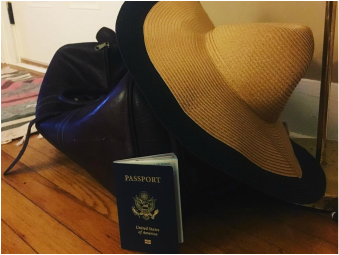 Well – after packing my bag and passport and hitting the road for Atlanta – I finally made it to Uganda! I arrived at 4am after 30 hours of travel and by 10 am it was time to hit the ground running. We have an exciting week ahead of us filled with meetings with different organizations in Kampala, the capitol, and in North Uganda in a South Sudanese refugee camp. My colleague Oeindrila Dube, a professor at the University of Chicago - Harris School of Public Policy, met me in Kampala to begin our journey together. I reached out to Oeindrila earlier this year after becoming interested in her work in reconciliation and forgiveness in Sierra Leone. I listened to her interview on the podcast This Hidden Brain and became extremely interested in her research focus and how it relates to our work at Playing to Live! I could write pages on my interest in theories of the findings in her research on forgiveness in relation to expressive art therapy, but I will save it for another time. I highly recommend listening to her explain her findings in this NPR podcast (link: http://www.npr.org/2016/01/26/463861864/fambul-tok-forgiveness-and-family-talk-in-sierra-leone). After connecting, Oeindrila and I continued conversations about how Playing to Live programming has developed and how our statistics in Liberia have shown a significant decrease in psychosocial stress symptoms from children enrolled in our 6 month post Ebola program intervention. We began to explore opportunities in combining her strength in research design and the programming developed by Playing to Live. Those conversations are what led to both of us arriving in Kampala, Uganda early this morning. After months of conversations, we finally met in person for the first time in Kampala and immediately started to explore all the avenues Playing to Live could take to support children and communities living in refugee camps in Uganda. The core of our programming focuses on individual healing, community empowerment and collaboration, psycho-social skill building, relationship skill building, creating safe spaces, and training community based individuals on ways to use their cultural arts as a healing technique. Each of these core components of our work, we can dream of all the ways that these can take shape as we discuss the next chapter of Playing to Live. The greatest challenge may be determining what aspect is the most important to evaluate as we move forward! How can we make the greatest impact in the field with the children and communities we serve? Together we are excited to explore the options. It’s only been one day -- but I feel like all of our preparation for this trip is already beginning to come to fruition. In the afternoon of our first day, we had a meeting with a representative of a refugee camp to explore opportunities, needs, barriers, and ideas for future collaboration. Additional meetings we have scheduled for this week will explore possible future partnerships and allow us to delve deeper into the reality of the needs and life within a refugee camp here in Uganda. Our goal is to engage key stakeholders and the community to customize programming in partnership with our team at Playing to Live. We do this in order to promote community organizations as the core resource in the curriculum’s development; therefore, these initial meetings will be crucial in relationship building and building the groundwork for future program development. Tomorrow starts another full day, and I’m eager to keep going. I invite you to continue to follow our blog for frequent updates along the way. We invite you to follow us on this journey! “Let me be clear: people in South Sudan are not just fleeing their homes because they need food, shelter or medical care and school for their children. They are fleeing [because they] fear for their lives,” Mr. O’Brien told reporters at UN Headquarters in New York. “We must protect them, and we must save their lives,” he stressed. UN.org As I prepare to fly out to Uganda today, this quote rings in my head. At Playing to Live! we seek to protect children and families through building skills to combat the effects of the trauma, and in this case, trauma due to violence and displacement. Within refugee camps families ideally have received their basic shelter and food needs, but the short term and long term interpersonal, social, and psychological effects of trauma prevail. I have scheduled meetings within a large refugee camp in Uganda to speak to organizations on how we can begin to address the psychological needs of children and families as they live within the camp. Our mission at Playing to Live believes that all communities have the resources to heal from trauma and our role is to teach skills to empower these resources.
Playing to Live! started out with such energy in 2015, that it has been essential that we take all that we have learned and make something even stronger, so 2016 has become our building year. Throughout the year we have been meeting and speaking with organizations nationally and internationally. Through these conversations we have gathered a deeper understanding of the needs of communities who are experiencing trauma and the programming needs of the organizations who serve them.
We are excited to announce that our executive director, Alexis Decosimo, will be flying to Uganda next week to speak with organizations working in South Sudanese refugee camps. According to the UNCHR the refugee crisis has reached the highest numbers on record. We have been gathering data on the psychological impact of displacement for children and families, and we have noted that in humanitarian/refugee settings the prevalence of PTSD is 15.4% and mood disorders are 17.3%, while in non humanitarian settings the rates are 7.6% and 5.3% (Tol et al, 2011). As clinicians and researchers we must wonder if the rates are actually higher due to the trauma of experiencing grief, being forced from home, and the fractures of community support.
The South Sudanese, which is the world's youngest country, has been experiencing war since 2013. According to CFR, since the war began over 50,000 people have died and 1.6 million people have been displaced due to the war. Uganda, which hosts some of the refugee camps, will be our entry into conversations about how our mission can support the refugee communities.
We have spent the last few months researching the needs and structures of a few of the refugee camps in Uganda. As with any community, we want to arrive with a foundational understanding of the community's needs and culture. It is imperative that we visit with the communities and organizations that serve them to further understand how Playing to Live! can build a program to support the healing recovery of their children. We know as clinicians, researchers, and humans that cultural play, art, and expression can aid in the healing of trauma and war. We urge you to watch this video from New York Times, though this camp is not in Uganda nor will we be visiting it, this video shows the impact of war and the natural play that children engage in to their story. We look forward to sharing our continued story with you
Reference: Tol, W. A., Barbui, C., Galappatti, A., Silove, D., Betancourt, T. S., Souza, R., … Van Ommeren, M. (2011). Mental health and psychosocial support in humanitarian settings: Linking practice and research. The Lancet, 378(9802), Tol, W. A., Barbui, C., Galappatti, A., Silove, D., Betancourt, T. S., Souza, R., … Van Ommeren, M. (2011). Mental health and psychosocial support in humanitarian settings: Linking practice and research. The Lancet, 378(9802),
|
Welcome to Our Blog!
We will be providing you with stories of the communities we support. The children and their caregivers featured in this blog have provided consent to share their art, pictures and stories. Archives
April 2020
Categories |
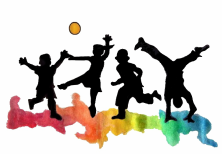
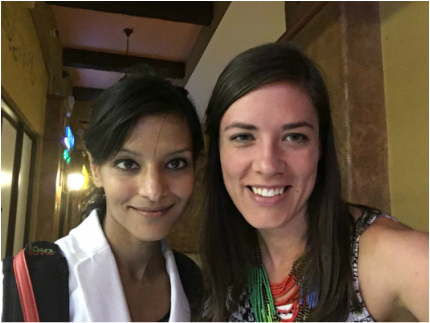
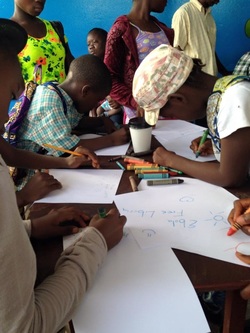

 RSS Feed
RSS Feed